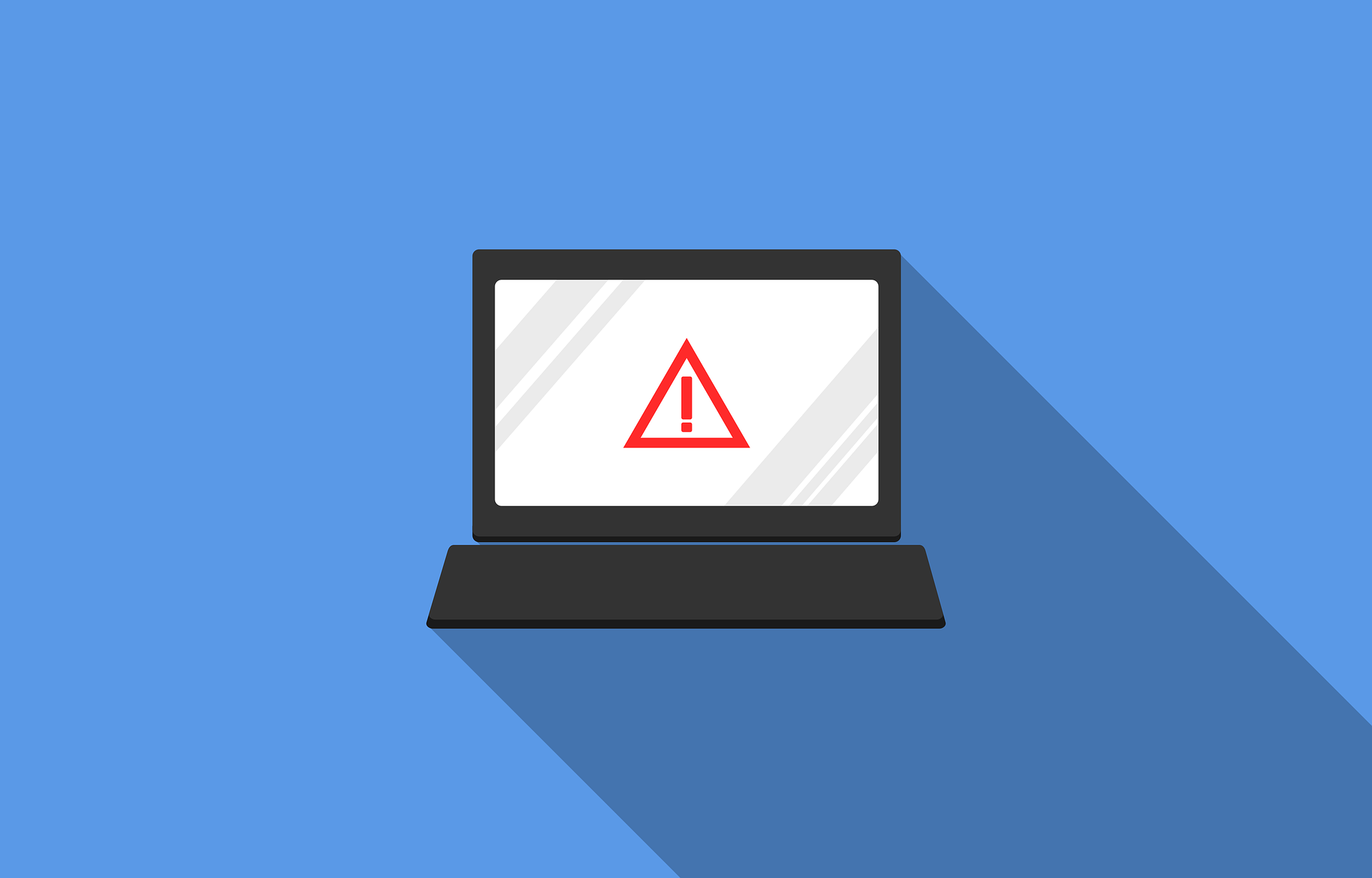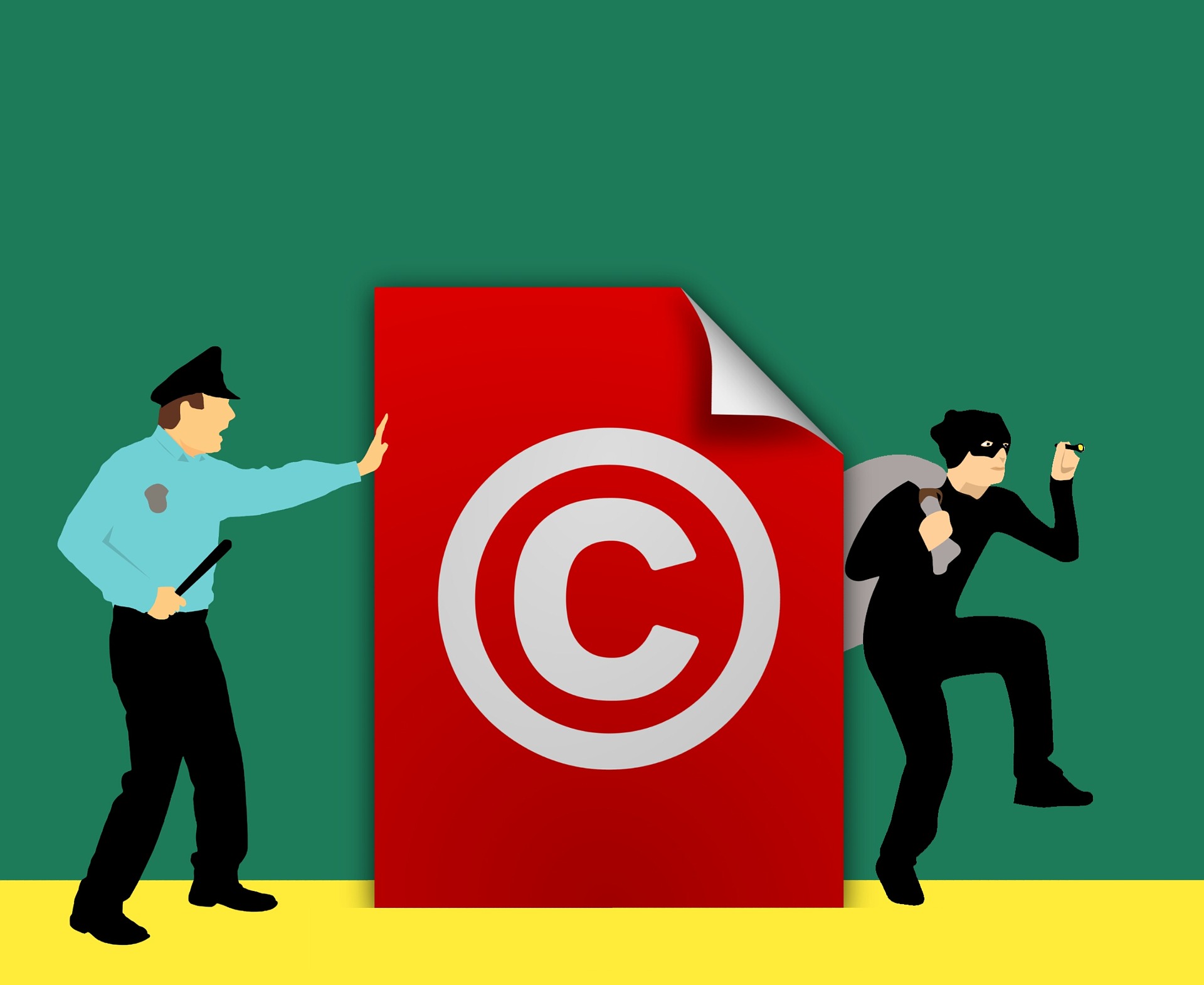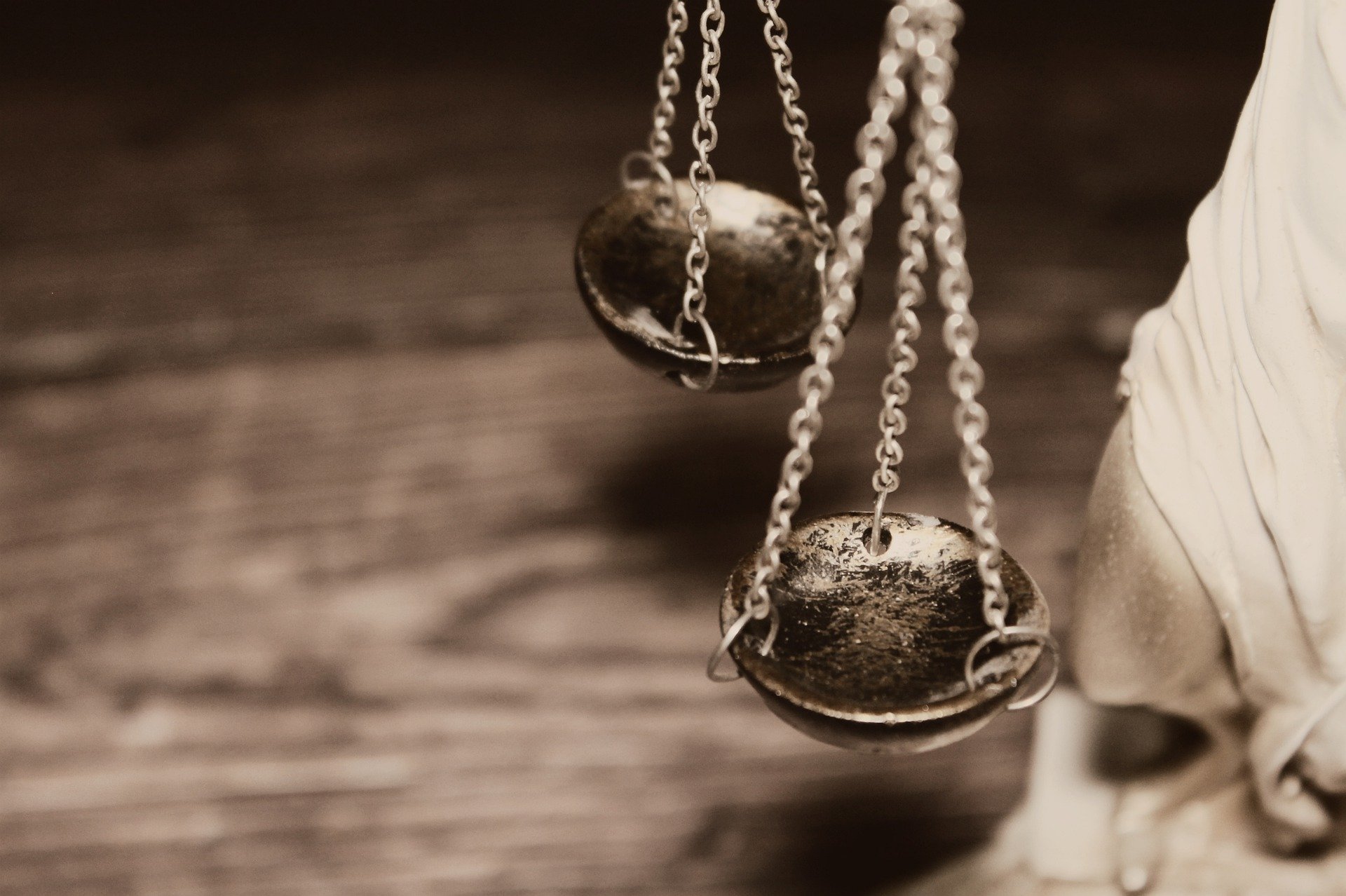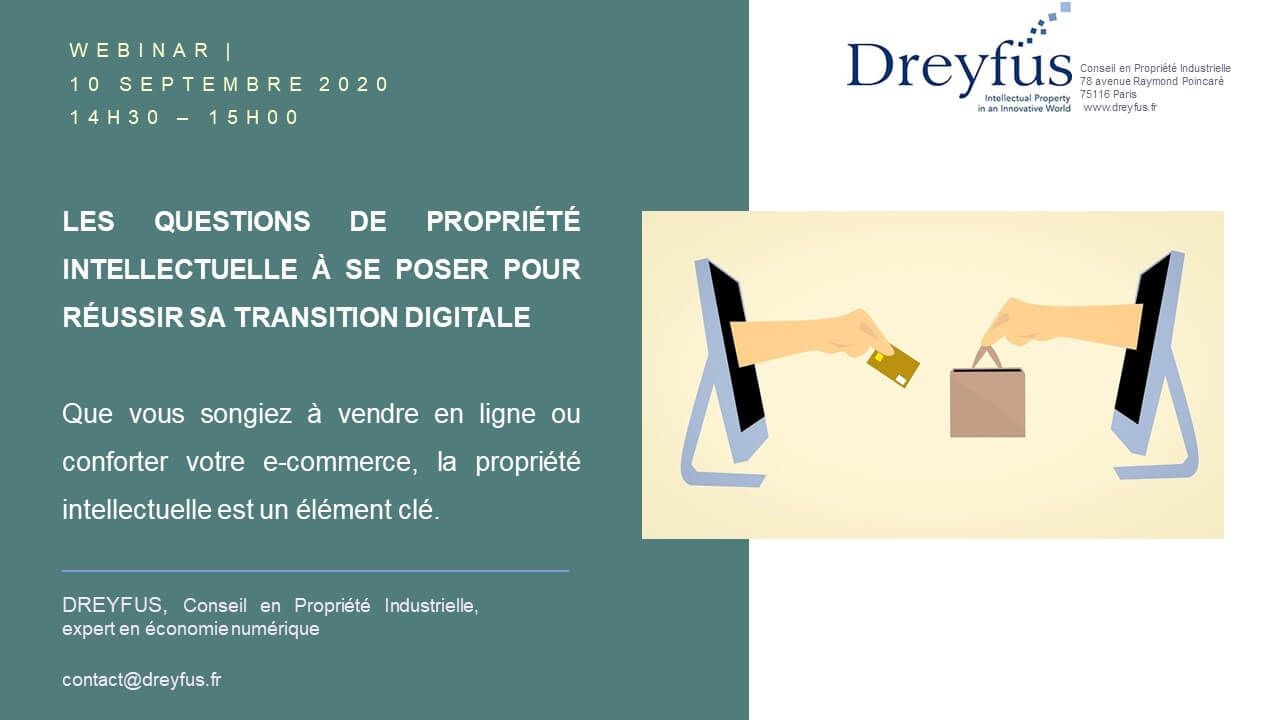Council conclusions on intellectual property policy and the revision of the industrial design system in the European Union



ICANN has proposed a project to create a System for Standardized Access/Disclosure (SSAD), which would allow standardized access to non-public data on domain name registrations.
The objective of the SSAD is to provide a predictable, transparent, efficient and accountable framework for access to non-public registration data. It must also be consistent with the GDPR.
However, the decision whether or not to grant requests would still belong to the registrars, as legal constraints on personal data may vary from country to country.
This project accelerated in August during Stage 2 of the policy development process, during which a final report was presented that provides 22 recommendations for the system.
The creation of this SSAD could, in the coming years, facilitate the fight against cybersquatting, which has been strongly impacted by the GDPR and WhoIs anonymization processes. It should be remembered that the next round of requests for domain name extensions should take place in 2023, bringing a whole new set of challenges in the fight against Internet attacks.
Source: LexisNexis, N°1 (January 2021)

Free speech, or bad faith? UDRP panels split on Everything.sucks domains
Mirapex.sucks, Case n° 103141, 2020-06-29 : https ://udrp.adr.eu/adr/decisions/decision.php ?dispute_id=103141
Bioderma.sucks, Case n° 103142, 2020-07-01 : https ://udrp.adr.eu/adr/decisions/decision.php ?dispute_id=103142DNS News No. 270, Oct. 2020
The top-level domain name extension <.sucks> was open for registration by ICANN in 2015. At the time, some brands were already concerned about the risk of cybersquatting on these extensions, and the possible damage to the brand image that this could generate. In fact, many domain names that use trademarks known and ending in <.sucks> were born. Very often, these domain names refer to pages where Internet users can complain about the brand in question, whether they are consumers or former employees.
During the past months, the phenomenon has intensified with a lot of reservation numbers, clearly done by the same registrar of the domain name in <.sucks>. Suddenly, new online pages have emerged, with the same structure and bad comments about renowned brands. A system of resale at prices between $199 and $599 is also in place.
The question of the dispute resolution about the <.suck> is complex, since the situation raises issues relating to freedom of expression.
Two recent cases with two opposite outcomes illustrate this complexity. The domain names <mirapex.sucks> and <bioderma.sucks> were both registered by the same registrar and are both the subject of UDRP complaints. In response to these two complaints, the defendant based his argument on freedom of expression. For <mirapex.sucks>, the complaint was unsuccessful, on the contrary, for <bioderma.sucks>, the name transfer was ordered.
In the case of <bioderma.sucks>, the expert had taken into consideration the fact that the registrar didn’t use the domain name for bad comments on the trademark in question but was simply a third party who registered the domain name seeking to resell it. The reseller was a company located in the Turks and Caicos Islands whose activity is the purchase and resale of names in <.sucks>. The latter had no way of verifying if the bad comments were authentic. Especially because those comments seemed to have been added only after the complaint was filed.
On the other hand, in the decision on <mirapex.sucks>, reserved by the same company, the transfer was refused. The expert gave special attention to the nature of the <.sucks> and to the freedom of expression, while underlining the insufficiency of the argumentation of the applicant.
One thing is sure: prevention is better than cure, therefore it would preferable to register a brand in the extension <.sucks>, on a purely defensive basis.

The Covid-19 pandemic has not diminished this trend. On the contrary, the online shopping has increased the trend as stated in the “2020 Consumer Buying Behavior Report” of the company Intelligence Node tracing consumer’s behaviour.
Due to the forced closure of stores, consumers increased their online purchases. Thus, the counterfeiting phenomenon expanded, as well. According to this report, most consumers are attracted by a cheaper price, but they are completely unaware that they are buying a counterfeit product.
The report shows that:
– More than 50% of internet buyers search Google, Amazon and other marketplaces before buying. They look for the product description, features, price and possible discounts.
This is what can lead them to choose websites promoting counterfeit products, since:
– 70% of buyers opt for counterfeiting for price reasons.
– 82% of the buyers had indicated that they would continue to buy online even when the stores reopen.
In addition, a survey published by the French consumer association UFC- Que Choisir, on October 22nd, 2020, showed that online frauds, on an online purchase, are not always reimbursed by banks. Only one out of three frauds per year was reimbursed last year. The bank generally blamed the consumer for negligence.
The new DSP2 Directive (European Payment Services Directive 2nd version) requires that the transaction must be confirmed by the bank through a “strong authentication” system, when making an online purchase. The French authorities have given a deadline for the first quarter of 2021 for all the banks to be compliant.
In light of these elements, companies must actively protect their intellectual property rights, including property on the Internet, to avoid the drop in sales and the loss of customers. Indeed, it is known that consumers who are victims of a scam will tend to turn away from the company whose products or services have been counterfeited.
An effective defence of the brand on the Internet is carried out through a strategy that includes prior searches and surveillance. The prior search provides a snapshot of the current situation of the trademark on the Internet (existing infringements, potential prior art in certain countries, etc.). The surveillance allows the detection of all domain name registrations reproducing or imitating the trademark, from the moment the surveillance is set up. It keeps in check any potential infringement as soon as it is detected.

Guerlain filed a successful appeal before the Paris Court of Appeal. The court rendered its decision on September 22, 2020, ruling in its favour: the sign “Le Frenchy” is sufficiently distinctive and is not descriptive, for the concerned goods.
In the contested decision, the Director of the INPI had considered that English is predominant in everyday language and that many expressions including the term “French”, such as “French manicure” or “French tech”, are commonly used in commerce. He added that the addition of the vowel “y” to the adjective “French” does not change the nature of this slang Anglicism.
Guerlain states that the term “Le Frenchy” evokes a “little Frenchman” in slang and that this reference to the French spirit alone is not enough to deprive the sign of distinctiveness.
The Court of Appeal agreed with Guerlain’s arguments, holding that “Le Frenchy” evokes “a person representing a style, a French way of life, a spirit” and not directly the origin of the good.
The combination of the article “le” and of the term “Frenchy” is unusual and arbitrary in relation to the goods in question. Therefore, the sign does not lack of intrinsic distinctiveness within the meaning of Article L.711-1 of the Intellectual Property Code. Similarly, it is not descriptive, within the meaning of Article L.711-2 b), of the goods concerned, as this trademark does not designate a characteristic of the goods, but rather aims to qualify the person who might consume the goods.
It might be assumed that the trademark was saved because the sign “Le Frenchy” includes a form of slang which is not directly related to the goods in question.
The decision might have been different if the sign at stake mainly comprised the word “French”.
For example, the European Union Intellectual Property Office (EUIPO) rejected the trademark ‘LIVE THE FRENCH WAY’ on December 9, 2019 for lack of distinctive character in relation to the services covered in classes 35, 39 and 43, as it would be perceived as a “laudatory promotional slogan”.
In any event, in case of doubt as to the validity of a sign, it is advised to file the projected trademark in semi-figurative form, if it is intended to be used in a stylised manner. Graphic elements increase the distinctiveness of a sign.
Dreyfus can assist you in the management of your trademarks portfolios in all countries of the world. Do not hesitate to contact us.

Being the owner of a trademark that is identical to the disputed domain name is a real advantage in the UDRP procedure. Nevertheless, it is necessary to prove that the respondent was aware of said trademark rights, which is quite complicated when the trademark at issue hasn’t been widely advertised.
Natixis Intertitres, the subsidiary of Natixis, a French internationally known corporate company, holds the registered trademark “INTERTITRES”. This subsidiary filed a complaint before the WIPO Arbitration and Mediation Center in order to obtain the transfer of the disputed domain name <intretitres.fr> registered by a third party without authorization.
During the procedure, the identity of the registrant was disclosed, revealing a Swedish owner.
The Complainant sustained that the domain name was registered in reference to its trademark without any relation to the generic definition of the term “intertitres” especially considering that, in the French language, as in the French dictionary, the term is generally used in the singular form.
Moreover, the complainant finds the configuration of mail servers on a domain name that doesn’t refer to any website “suspicious”. Natixis Intertitres sustained that the Respondent’s intention was to take undue advantage of the Complainant and its trademark’s reputation.
The Respondent didn’t submit a formal response to the complaint but stated that he had reserved the domain name in order to create a site related to literature.
The expert in charge of this dispute acknowledges the likelihood of confusion between the trademark and the subsequent domain name, as well as the lack of proof of legitimate interest by the Respondent, who didn’t really explain the choice of this domain name.
However, the expert is not convinced by the Complainant’s arguments as regards the bad faith criterion. In this respect, he highlights two important points.
Firstly, there is no evidence that the Swedish-based registrant was aware of the trademark “INTERTITRES”. Natixis is certainly internationally known as a company, but this is not the case for its “INTERTITRES” trademark, which designates lunch vouchers mainly available in France. These vouchers are rather known under the names of “CHEQUE DE TABLE” or “APETIZ”. Therefore, it is unlikely that the Respondent was aware of this trademark.
Secondly, “INTERTITRES” is mainly a generic term. The fact that dictionary definitions are given in the singular form does not mean that the term does not exist in its plural form.
The complaint is therefore rejected.
In view of the above, it is essential for right holders to be aware of the scope of protection that their trademark can enjoy. Is the trademark sufficiently well known in the registrant’s country so that it is reasonable to assume that they had it in mind when they reserved the name? This question must be carefully considered, especially when the trademark has also an everyday language meaning and the disputed domain name is not used for an activity similar to the one for which the prior trademark is used. In this regard, the expert rightly pointed out that using a domain name primarily for having a letterbox is not prohibited (referring to the presence of e-mail servers on the disputed domain name).
Dreyfus can assist you in the management of your trademarks portfolios in all countries of the world and in their enforcement. Do not hesitate to contact us.

A dispute between a distribution company and YouTube
Constantin Film, a German film distribution company, noticed that some of the films it distributed were uploaded on YouTube without its consent. Therefore, the company turned to YouTube to obtain the e-mail and IP addresses of the users who had put this content online.
As YouTube and Google (Google owns YouTube) refused to share such data, the case went to German courts.
Article 8 of the European Union Directive on the enforcement of intellectual property rights provides for the possibility for right holders to request information from infringers and/or persons who have provided services to them, here YouTube, about “the origin and distribution networks of goods or services which infringe an intellectual property right”, including the “names and addresses” of the persons involved.
The German Federal Court has questioned whether e-mail and IP addresses should be considered “addresses” within the meaning of the Directive. The German Court decided to stay the proceedings and referred to the European Court of Justice for a preliminary ruling on whether such information falls within the meaning of the term “address” in the Directive 2004/48.
2. A definition of “address” that does not include IP and e-mail addresses
The answer of the CJEU is clear: EU law does not assimilate IP addresses and e-mail addresses with addresses.
The notion of address in the above-mentioned article must be understood in the sense of a postal address.
In its press release No.88/20 of July 9, 2020, the Court states that: “as regards the usual meaning of the term ‘address’, it refers only to the postal address, that is to say, the place of a given person’s permanent address or habitual residence” when used without any further clarification.
Nevertheless, the CJEU indicates that Member States may grant holders of intellectual property rights a more extensive right to information.
In the above-mentioned press release, the Court specifically mentions, regarding Article 8 of the 2004/48 directive, that “the aim of that provision is to reconcile compliance with various rights, inter alia the right of holders to information and the right of users to protection of personal data”.
This decision limits the range of action of right holders, for whom it is increasingly difficult to identify persons infringing on their assets. In addition to this issue of IP addresses and e-mails that do not fall within the scope of what is understood by “address”, The Data Protection Regulation, known as the GDPR, of April 27, 2016, has also complexifed the defence of rights on the Internet, as privacy has been increased and information on the holders of domain names redacted.

Intellectual property questions for a successful digital transition
How to secure and optimize your website? What precautions to take? How to defend your intellectual property rights on the Internet?
When you want to succeed in your digital transition, you have to ask yourself certain questions.
Whether you are thinking of selling online or strengthening your e-commerce, intellectual property is a key element.

In this respect, two schools of thought clash: for some, it is necessary to impose obligations to control the content published on these platforms, but for others, this would reflect the attribution of a new role to these operators, which has not been given to them on a basic level.
“There would be a risk that platform operators would become judges of online legality and a risk of ‘over-withdrawing’ content stored by them at the request of users of their platforms, to the extent that they also remove legal content,” said Advocate General Henrik Saugmandsgaard Øe, who presented his conclusions before the Court of Justice of the European Union (CJEU) on July 20, referring to request for preliminary ruling a preliminary ruling made by the Bundesgerichtshof, the German Federal Court of Justice, on two disputes brought before the German national courts.
The first dispute (1) was between Frank Peterson, a music producer, and the video-sharing platform YouTube and its parent company Google over the users posting , of several phonograms without Mr. Peterson’s permission, to which he claims to hold rights.
In the second (2), Elsevier Inc, an editorial group, sued Cyando AG, in connection with its operation of the Uploaded hosting and file-sharing platform, over the uploading, again by users without its authorization, of various works to which Elsevier holds exclusive rights.
In said requests for preliminary ruling, it is a question of knowing whether the operator of content platforms such as YouTube, performs acts of communication to the public pursuant to Article 3(1) of Directive 2001/29 of the European Parliament and of the Council of 22 May 2001 on the harmonisation of certain aspects of copyright and related rights in the information society, a directive that was invoked against YouTube.
The answer is negative, according to the Advocate General, who invites the CJEU to bear in mind that the legislator of the Union has specified that the “mere provision of facilities intended to enable or carry out a communication does not in itself constitute a communication within the meaning of [this directive]”. According to the Advocate General, it is, therefore, important to distinguish a person performing the act of “communication to the public”, within the meaning of the Article 3(1) of the Directive 2001/29, from service providers, such as YouTube and Cyando, who, by providing the “facilities” enabling this transmission to take place, act as intermediaries between that person and the public. On the other hand, a service provider goes beyond the role of intermediary when it actively intervenes in the communication to the public – if it selects the content transmitted, or presents it to the public in a different way from that envisaged by the author.
Such a conclusion would lead to the non-application of the Article 3(1) of the Directive 2001/29 to those people facilitating the performance, of unlawful acts of “communication to the public”, by third parties.
Moreover, it is a question of knowing whether the safe harbour – in the case of “provision of an information society service consisting in storing information provided by a recipient of the service” – provided for in the Article 14 of the the Directive on electronic commerce n°2000/31 is in principle accessible to these platforms (according to the Advocate General, it is).
This provision provides that the provider of such a service cannot be held liable for the information that it stores at the request of its users, unless the provider, after becoming aware or conscious of the illicit nature of this information, has not immediately removed or blocked it.
However, according to the Attorney General, by limiting itself to a processing of this information that is neutral with respect to its content without acquiring intellectual control over this content, the provider such as YouTube, cannot be aware of the information it stores at the request of the users of its service.
The CJEU will, therefore, have to rule on these issues in the coming months.
Furthermore, it should be noted that in 2019, the Union legislator adopted the Directive No. 2019/790, not applicable to the facts, on copyright and related rights in the single digital market, modifying in particular the previous Directive of 2001. A new liability regime was introduced in Article 17 for operators of online hosting platforms.
Sources :
https://curia.europa.eu/jcms/upload/docs/application/pdf/2020-07/cp200096fr.pdf
C-683/18 Elsevier Inc. v Cyando AG

Many breeders also wish to export internationally, but protecting plant varieties abroad is often complex.
European but also international legislations are harmonized by the application of the UPOV Convention (International Union for the Protection of New Varieties of Plants) which has 76 members.
Under this Convention, the breeder’s right is granted when the variety meets several conditions: novelty, distinctiveness, uniformity and stability. Finally, the variety must be designated by an appropriate denomination.
Protection in the European Union :
Filing of the application :
Since 1995 there has been a unitary Community title: the Community plant variety certificate. This title produces the same effects as a national title in each Member State.
However, this certificate cannot be cumulated with national plant variety certificate. Before applying, the breeder will therefore have to make a choice to protect his new variety.
The application for protection must be filed with the Community Plant Variety Office (CPVO). The French breeder can file his application directly with the CPVO but also with the INOV (National Plant Variety Office) which will forward the application to the CPVO.
In addition, there are certain requirements regarding the content of the application. For example, the following must be included:
– The names of the breeder and the representative of the procedure if any,
– Information concerning the botanical taxon (group of organisms),
– The provisional designation given to the variety,
– Information on the previous marketing of the variety,
– Information on previous applications for the variety,
– The deadlines relating to the priority,
– Proof of payment.
It is also necessary to complete a technical questionnaire and a form for the appointment of a procedural representative (if the applicant is not a within the European Union).
The criterion of novelty :
In order to meet the criterion of novelty, the varieties must not have been marketed for more than one year within the European Union and for more than 4 to 6 years (depending on the variety) outside the European Union. Beyond this period (known as the “grace period”), the variety will no longer be considered as new.
Protection during the Brexit :
The French holder of a Community plant variety right will not cease to be protected in the United Kingdom because of the Brexit. Indeed, the United Kingdom has announced the automatic creation of British plant variety titles which will be equivalent for all Community titles registered before the date of Brexit.
Extent of protection :
The extent of protection in the European Union is similar to that of the French legislation. Thus, the following will be subject to the holder’s authorization: production and reproduction, packaging for the purpose of propagation, offering for sale, sale or other marketing, export from the European Union, import into the European Union and storage for any of the above purposes.
The protection is also applicable to harvested products obtained without the consent of the breeder unless the breeder has had a reasonable opportunity to exercise his right and finally, it also applies to essentially derived varieties.
Protection during the provisional period:
During the provisional period (period between the filing of the application and the grant of the right) the breeder can assert his exclusive rights against all acts that would have required his authorization after the grant of the right.
However, the breeder will only be entitled to an “equitable remuneration”.
Counterfeit Prevention :
Finally, regarding customs surveillance to protect against counterfeiting, plant variety rights are included in the intellectual property rights subject to European Regulation 608/2013 of June 12, 2013 on the control by customs authorities of the enforcement of intellectual property rights.
International protection :
At the international level, legislation is largely unified by the UPOV Convention.
However, the Convention does allow national legislators to take into account national circumstances. The breeder must therefore inform himself in advance of any national specificities in order to ensure the protection of his titles in the best conditions.
Beware, that some countries are not members of UPOV !
The filing of the application :
During the filing of the application, the breeder has two possibilities:
– The filing of his application in each of the national offices;
– The filing of his application using the multilateral priority filing system UPOV PRISMA. This online system allows the breeder to file, through a single system, all his applications with the participating plant variety protection offices. However, one must be careful because some countries are not part of this UPOV PRISMA system such as South Korea, Japan or China (only for lettuce).
The breeder will also have to take into account the delays of the examination procedure which are on average 1 to 2 years. However, these periods can be much longer in some countries (sometimes more than 5 years for Japan or Russia for some fruit trees).
Protection during the provisional period :
During this provisional period, the breeder will also be protected, as in the case of the Community title, against acts requiring his authorization and will have the right to claim an equitable remuneration.
The criterion of novelty :
In the UPOV Convention, the grace period for the criterion of novelty, as for Community titles, will be one year within the country in which protection is sought, and 4 to 6 years outside that country. However, it is important to check the grace period in each of the countries concerned.
The extent of the protection :
Finally, the extent of the protection of plant variety titles is the same as that of the Community title in UPOV member countries due to the application of the Convention; provided that certain national particularities are taken into account.
If the UPOV Convention has allowed since 1961 to harmonize and establish a legislation protecting plant varieties in many countries, the breeder, wishing to develop internationally, will have to remain attentive to national legislations and their specificities.
To read more about Conflict between trademark and plant variety